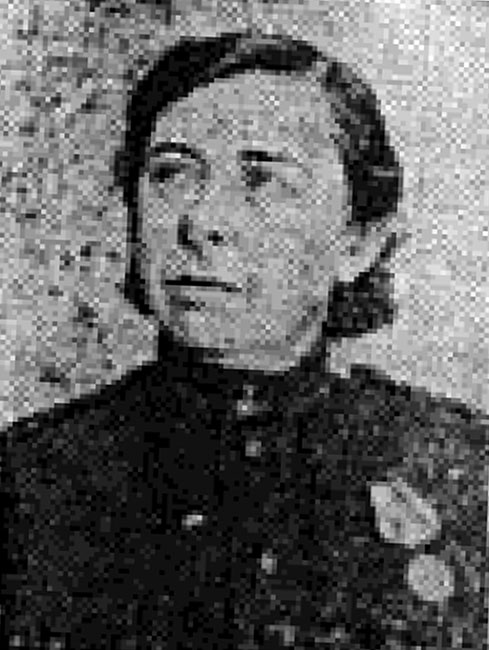Ida Epshtein was born into a Jewish family in 1898 in Rostov-on-Don, Russia. When war broke out on June 22, 1941, Ida was working in her hometown as an ophthalmologist. After Epshtein volunteered for the Red Army on September 18, she served as a military doctor and a surgeon at Evacuation Hospital No. 3240 (one of many field hospitals in the combat zone that gave primary medical and surgical treatment to casualties and from which seriously wounded personnel were sent to the rear for further medical treatment). As the head of the hospital's medical department, Ida Epshtein served as a role model for the rest of the hospital staff. In many cases she dressed wounds and performed life-saving surgery under extremely difficult conditions day and night.
During the war Ida Epshtein was promoted to the rank of captain and awarded the "For the Defense of Stalingrad" medal. She ended the war in Germany. Afterwards she continued to serve as a doctor and a surgeon at a military hospital.
On February 4, 1946 Captain Ida Epshtein was decorated with the Order of the Red Star. Her decoration certificate said that she was being honored "for outstanding devotion in saving the lives of Red Army soldiers and officers and returning them to the ranks of the army."
Article about Ida Epshtein
The Yiddish article titled "The Heroic Doctor Ida Epshtein", published by Fayvel Sito in Eynikayt, contains the following description of her devotion and courage:
"In Lgov, near [the city of] Briansk, Ida Epshtein, a captain of the medical service, was performing surgery on a Russian Red Army soldier. It was necessary to amputate his leg. Suddenly there was a terrible explosion. In the small room where Ida was operating all the windowpanes shattered and the electric lighting cut off. Then plaster from the ceiling fell onto her head. It was dangerous both for the doctor and the patient, who was anesthetized to continue with the operation under these conditions. But Ida Epshtein wasn't thinking about herself. As a doctor her first aim was to save the [life of the] patient. Since it would have been dangerous to wake him while the wound was still open and the surgery had not yet been completed, the surgery had to be completed. So Ida Epshtein ordered the nurse to close the curtains and to light a kerosene lamp. Thus, in a kind of a blackout Ida continued operating under the deadly fire of the enemy, who was non-stop bombing the area where the military hospital was located. Her strong willpower and great courage prevailed: Ida successfully completed the operation and immediately evacuated the patient to [a hospital in the] the rear. …"
From: Fayvel Sito, "Der heldisher doktor Ide Epshteyn," Eynikayt, 9 March 1944.







